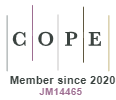Power and norms in cyberspace
DOI:
https://doi.org/10.5585/rtj.v11i2.22684Keywords:
internet regulation, fake news law, instrumentalization of the positive legal systemAbstract
This paper develops an analysis of the connection between the political dispute and the normative legal production concerning the topic of cybercrimes, with an emphasis on the production and dissemination of false news (fake news) and disinformation actions on the Network in Brazil. It presents a discussion of the academic literature on the subject, listing social and political factors of necessary observation to evaluate the change in the legal regulation of cyberspace, in a comparative perspective with international experiences in this field of political dispute and legislative production. The study employs a qualitative methodology of a bibliographic and documentary nature and remote data access and concludes by the presence of a process of instrumentalization of Brazilian positive law aimed at benefiting the political class, through the creation of legal provisions that regulate cyberspace, establishing criteria for legal liability of creators and reproducers of content in new digital media.
Downloads
References
ALÊ, Youssef. Novo Poder: democracia e tecnologia. Belo Horizonte: letramento, 2018.
AMATO, Lucas Fucci. Fake news: regulação ou metarregulação? Revista de Informação Legislativa: RIL, Brasília, DF, v. 58, n. 230, p. 29-53, abr./jun. 2021. Disponível em: https://www12.senado.leg.br/ril/edicoes/58/230/ril_v58_n230_p29
AGÊNCIA SENADO, Desinformação e fake news são entraves no combate à pandemia, aponta debate, 2021. Disponível em: https://www12.senado.leg.br/noticias/materias/2021/07/05/desinformacao-e-fake-news-sao-entrave-no-combate-a-pandemia-aponta-debate. Acesso em 17/01/2021.
BRASIL, 2º Vara Criminal de Uberlândia, Habeas Corpus 702.020.363.322, julgado em 03 de fevereiro de 2013.
CÂMARA DOS DEPUTADOS. Projeto de Lei PL 21/2020. Disponível online em: https://www.camara.leg.br/propostas-legislativas/2236340. Acesso em 25/01/2022.
CASTELLS, Manuel. O poder da comunicação. São Paulo: Paz e Terra, 2015.
COLTRO, Rafael Khalil; WALDMAN, Ricardo Libel. CRIMINALIDADE DIGITAL NO BRASIL: A PROBLEMÁTICA E A APLICABILIDADE DA CONVENÇÃO DE BUDAPESTE. Revista Em Tempo, v. 21, n. 1, p. 104-123, 2021.
DALLA GUARDA, Nicola. Governing the ungovernable: International relations, transnational cybercrime law, and the post-Westphalian regulatory state. Transnational Legal Theory, v. 6, n. 1, p. 211-249, 2015.
DE LIMA SOUZA, Sofya Godoy; TELLES, Isabella Lauro; FERREIRA, Oswaldo Moreira. RESPONSABILIDADE CIVIL E INTELIGÊNCIA ARTIFICIAL: UMA ANÁLISE DO PROJETO DE LEI Nº 5051/2019. Cadernos Camilliani e-ISSN: 2594-9640, v. 17, n. 2, p. 1960-1980, 2021.
GIBSON, William. Neuromancer. Nova Iorque: Ace Books, 1984.
HAFNER; LYON, Simon; Mathew. Where wizards stay up late: the origins of the Internet. Nova Iorque: Simon & Shuster, 1996.
JESUS; OLIVEIRA, Damásio de.; José Antônio M. Milagre. Manual de Crimes Informáticos. São Paulo: Saraiva, 2016.
LEMOS, Ronaldo. Regulamentação da internet no Brasil, in Comércio eletrônico, Ronaldo Lemos da Silva e Ivo Waisberg (orgs.) São Paulo: Revista dos Tribunais, 2001.
LEONARDI. Marcel. Fundamentos de Direito Digital. São Paulo: Revista dos Tribunais, 2019.
LESSING, Lawrence. Code and other laws of cyberspace, vension 2.0. Nova Iorque: Basic Books, 2006.
LOVELUCK. Benjamin. Redes, liberdades e controle: uma genealogia política da internet. Rio de Janeiro: Vozes, 2018.
PUTNAM, Robert D. Diplomacy and domestic politics: the logic of two-level games. International organization, v. 42, n. 3, p. 427-460, 1988.
PRESIDÊNCIA DA REPÚBLICA. LEI Nº 12.965, DE 23 DE ABRIL DE 2014. Disponível on line em: http://www.planalto.gov.br/ccivil_03/_ato2011-2014/2014/lei/l12965.htm. Acesso em 28/11/2021.
RIPOLL, Leonardo; DO CANTO, Fabio Lorensi. Fake news e" viralização": responsabilidade legal na disseminação de desinformação. Revista Brasileira de Biblioteconomia e Documentação, v. 15, p. 143-156, 2019.
RODRIGUES, Usha M.; XU, Jian. <? covid19?> Regulation of COVID-19 fake news infodemic in China and India. Media International Australia, v. 177, n. 1, p. 125-131, 2020.
SANTIAGO, Siri. Hacktivismo. Buenos Aires: Sudamericana, 2015.
SENADO FEDERAL. RELATÓRIO FINAL DA CPI DA PANDEMIA, 2021. Disponível em: https://legis.senado.leg.br/comissoes/mnas?codcol=2441&tp=4. Acesso em 17/01/2022.
ZYGMUNT. Ética pós-moderna. São Paulo: Paulus, 2006.
WIENER, N. Cybernétique et societé: L`usage humain des êtres humains. Paris: Ed. Sinótica, 1971.
WU, T. The Master Switch – The rise and fall of information empires. Nova Iorque: Knopf, 2010.
Downloads
Published
How to Cite
Issue
Section
License
Copyright (c) 2022 Simone de Sá Rosa Figueirêdo; Elton Gomes Reis

This work is licensed under a Creative Commons Attribution-NonCommercial-ShareAlike 4.0 International License.






